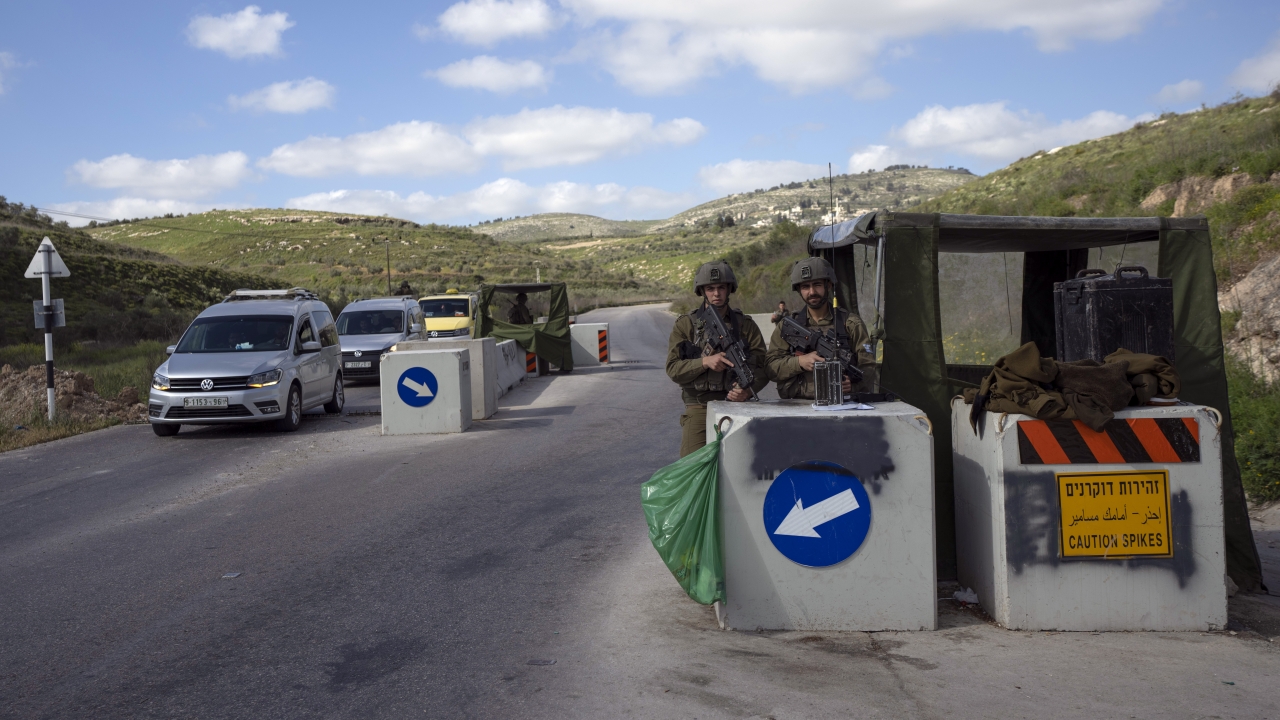If, during your travels in the Holy Land, you decide to take the next step with your Palestinian sweetheart, you should notify the Israeli military within 30 days.
That's what it says on page 30 of a new 97-page policy released by COGAT, the Israeli military body in charge of civilian affairs in the occupied West Bank. The policy, set to take effect later this year, specifies that the "start of the relationship" is the engagement, the wedding or when you move in together.
The wide-ranging policy imposes new restrictions on foreigners who marry Palestinians or who come to the West Bank to work, volunteer, study or teach, further extending Israel's nearly 55-year military rule into nearly every corner of Palestinian life. The rules do not apply to people visiting Israel or the more than 130 Jewish settlements scattered across the West Bank.
“It’s outrageous that the Israeli military thinks it can micromanage Palestinian society to this extent, to decide who’s qualified to teach at a university, who is entitled to have foreign volunteers," said Jessica Montell, director of the Israeli human rights group HaMoked.
Her group filed a legal petition with lengthy objections to the policy, leading Israeli authorities to delay its implementation from May 20 until early July.
The policy could also anger the United States, which has long refused to enter into a visa waiver program with Israel, in part because Israel treats Palestinian-Americans differently than other U.S. citizens. The State Department said it was studying the new procedures and “engaging with Israeli authorities to understand their applications.”
COGAT said the procedures formalize the application process and expand the “range of permitted purposes for entering the area.” It said the procedures are part of a two-year pilot program and that “certain parts” are already being re-assessed.
Israel captured the West Bank in the 1967 Mideast war, and Palestinians want it to form the main part of their future state. The new policy refers to the territory as Judea and Samaria, the biblical name favored by Israeli nationalists, including Prime Minister Naftali Bennett, who consider it the historical heartland of the Jewish people.
Palestinians from abroad who wish to visit the West Bank would have to list the names and ID numbers of family members — and say whether they themselves own property in the West Bank or stand to inherit any. Many fear that could pave the way for their land to be seized by settlers.
The policy would limit the number of visiting professors to 100 and the number of students to 150. A visiting lecturer would need to convince an Israeli military official that she “contributes significantly to academic learning, to the area’s economy, or to advancing regional cooperation and peace," the policy says.
Nearly all foreigners, including those in the private sector, would be forced to leave after 27 months and then wait another nine months before re-applying for entry. They would be limited to a total of five years in the territory, making long-term employment virtually impossible. Volunteers approved by the Israeli military could come for 12 months, but would then have to wait another year before applying for re-entry.
Birzeit University, one of the main institutions of higher education in the West Bank, said the policy “puts Palestinian universities under siege and divests them of basic control over their academic decisions.”
For thousands of foreigners who have married Palestinians and started families in the West Bank, the policy threatens to further complicate an already precarious life in which they could be separated from their families at any time.
Additional reporting by The Associated Press.







